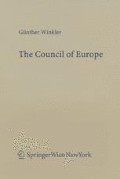5. Conclusions
The standards for the member states’ constitutions adopted by the various Council of Europe committees in connection with the Liechtenstein Affair are neither specified nor defined in the Assembly’s documents and opinions. Liechtenstein’s constitutional practice to date and that of the Council of Europe’s member states hitherto were neither sufficiently explored nor presented nor critically compared with each other in order to discover possible deficiencies. At all events, this contradicts the variety of the European constitutions’ fundamental principles which altogether incorporate the Council of Europe’s political plurality. The question has not yet been clarified as to whether the issue is the texts of the constitutions and/ or merely these states’ constitutional practice concerning the Council of Europe’s standards in the republics as well, as regards the standard the Council of Europe’s committees have selected as gauges, nor is it clear what ranking codified constitutional texts have regarding the Council of Europe as well. At all events, common law does not have the ranking in the constitutional European states that it does in the non-codified constitution of Great Britain.
This insight into presumed, or actual and in any case undesirable double standards leads to the question as to the minimum standard of democracy as the European heritage from the Council of Europe’s viewpoint. To date, there is no definition of the democratic standards by which the Council of Europe’ organs swear, but recently the Assembly and the Committee of Ministers have increased their efforts to get to the bottom of the matter.
Preview
Unable to display preview. Download preview PDF.
References
cf. Ministers’ Deputies Decisions, 893bis meeting, Item 2.2, Resolution (2004) 10; inviting the Principality of Monaco to become a member of the Council of Europe, 2 September 2004, CM/Del/Dec(2004)893bis, 3 September 2004; Opinion No. 250 (2004), 27 April 2004 (5 pages); Draft Opinion Committee on Legal Affairs and Human rights, Doc. 10138, 14 (9 pages). Report of the Political Committee Doc. 10128. 8 April 2004 (23 pages), based on the Reports on the conformity of the legal order of the Principality of Monaco with Council of Europe fundamental principles, prepared by Antonio Pastor Ridruejo and Georg Ress, Judge at the European Court of Human Rights, AS/Bur/Monaco (1999) 1 rev. 2, 25 June 1999; proceeding from Resolution (98)30 on the Principality of Monaco and Request for an Opinion from the Committee of Ministers’ Deputies Doc. 8265, 13 November 1998.
To the report of the judges Pastor Ridruejo and Ress on Monaco, see my commentary, Die Verfassungsreform von Liechtenstein. Verfassungsrechtliche Studien mit verfassungsvergleichenden und Europarechtlichen Perspektiven, Forschung aus Staat und Recht 145 (2003), 350 et seq.
For further details, see Günther Winkler, Das Memorandum. Eine kritische Analyse des Memorandums des Demokratie-Sekretariats im Vergleich zur Verfassungsinitiative des Fürstenhauses, zur Landesverfassung, zum Statut des Europarates und zur EMRK [“The Memorandum. A Critical Analysis of the Memorandum of the Democratic Secretariat Compared to the Constitutional Initiative of the Princely House, the Country’s Constitution, the Council of Europe Statute and the EHRC”], in: Verfassungsreform in Liechtenstein (2003), 163 through 364.
Act on the Upper House dated November 11, 1999, Art. 1: “No one can be a member of the Upper House on the strength of inherited rank of a peer.” Art. 2, Par. 1: “Art. 1 does not apply to those persons who are excepted by virtue of or in accordance with the parliamentary Rules of Procedure.” Par. 2: “90 persons shall be excepted for the duration of time set out in the provisions of Art. 1, not counting the holder of the office of The Supreme Master of Ceremonies and the principal.”
Rights and permissions
Copyright information
© 2006 Springer-Verlag/Wien
About this chapter
Cite this chapter
(2006). The Council of Europe’s Double Standards. In: The Council of Europe. Springer, Vienna. https://doi.org/10.1007/3-211-33506-4_17
Download citation
DOI: https://doi.org/10.1007/3-211-33506-4_17
Publisher Name: Springer, Vienna
Print ISBN: 978-3-211-27962-5
Online ISBN: 978-3-211-33506-2
eBook Packages: Humanities, Social Sciences and LawLaw and Criminology (R0)

